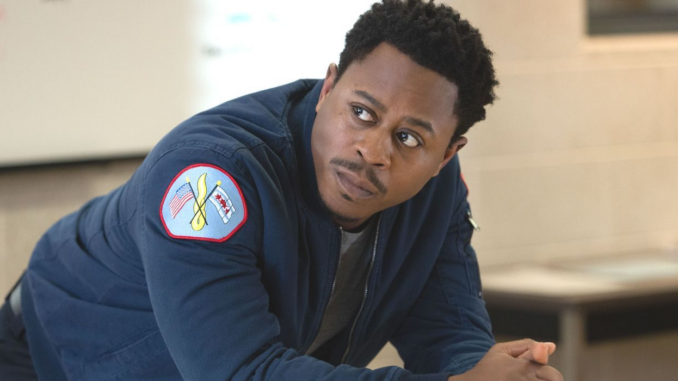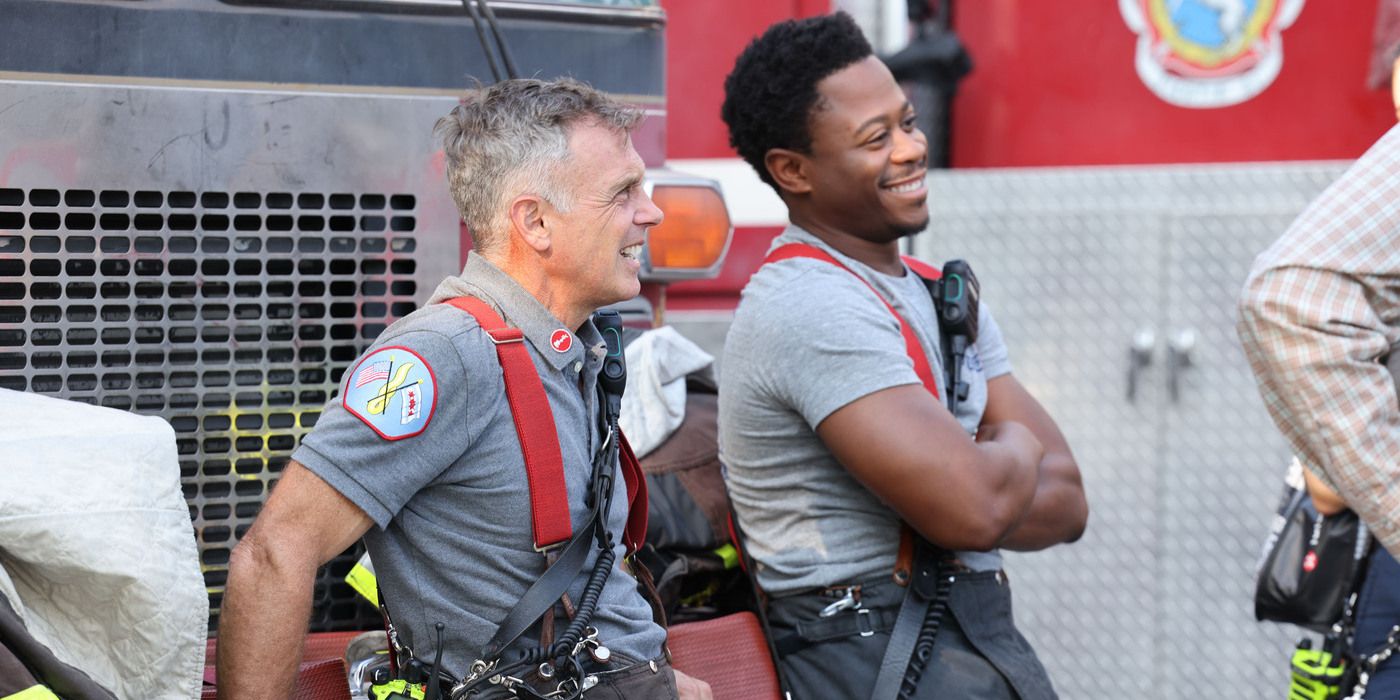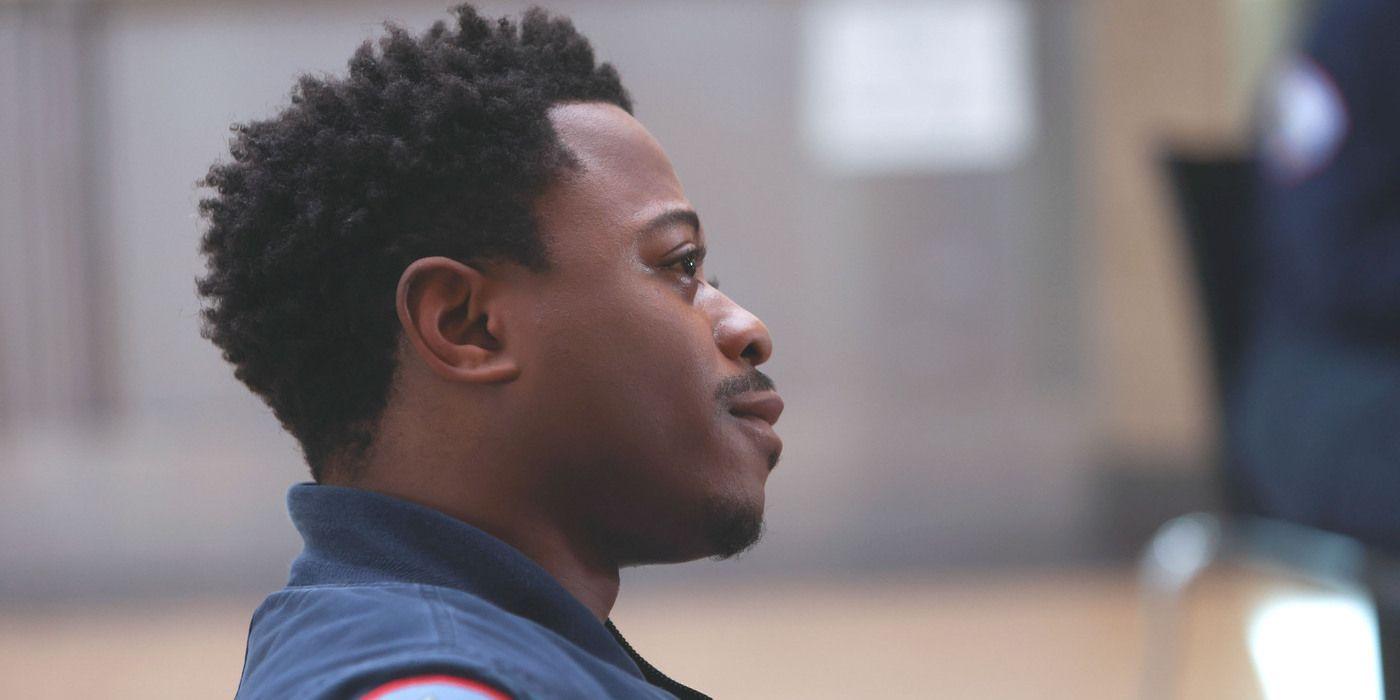
Daniel Kyri spoke with CBR about Ritter’s character arc now that he’s finished his fifth season on the show and his third as a series regular. He also discussed further exploring Ritter’s sexuality as the first LGBTQIA+ character in the series’ main ensemble since Lauren German portrayed Leslie Shay in Seasons 1-2. Kyri also discussed his role in a One Chicago series before Chicago Fire.
CBR: The Chicago Fire Season 11 finale highlights how far Ritter has come. In his first episode, he was completely unsure of himself, and now he’s encouraging Kylie. How cool has it been to take that journey as he’s come into his own?
Daniel Kyri: I’ve been a part of the show now… In July, it’ll be five years. That’s a significant amount of time, especially with Ritter [being in] active service as a first responder. Those things that happen on the calls come at you fast. You have to think on your toes, and it shapes you. Now, when I’m approaching an incident [on the show], it’s enlightening and illuminating to take into account who he was — learning on the job, trying to figure it out — to now being someone in command of his skill set as a firefighter.
The role feels tailor-made for you in a number of ways. Not only because you’re an LGBTQ actor, but you also grew up in Chicago, so the character is literally close to home, too. How do you identify with Ritter, and how are you different?
Ritter has had Mouch and Herrmann to help guide him, and the friendships he’s built with Blake Gallo and Violet Mikami have been highlights of Chicago Fire over the last few years. How would you describe the relationships you’ve formed with the cast?
I think the things that are special when it comes to my cast are the ways in which we are able to find moments together and breathe life into them and enhance them. The ways in which we interact inform us as individuals and as actors. In terms of mentorship in my acting career, that’s something I reserve for the real teachers that I have in my life. Sometimes when I’m on set, those teachers may take the form of Eamonn Walker, who inspires me, or Miranda Rae Mayo, who has really stepped into her this role of leadership on the show, both on-screen and off. She’s a fantastic leading woman to work with. There’s different ways in which I feel like the people that I work so closely with inspire me.
Chicago Fire addressed Ritter’s sexuality when he and Eric had to face homophobia, yet the show doesn’t define him by his sexual orientation. How would you describe the approach to his personal life? What would you like to see for him in that respect in the next season?
Audiences may not know that Ritter wasn’t your first One Chicago character. You guest-starred in a Chicago Med Season 3 episode playing the son of one of Dr. Will Halstead’s patients. Have you ever gone back and watched that episode?
Honestly, I really haven’t. I’m not too predisposed to comparison, as much as I can help it. I’m forward-oriented and interested in continuing my growth. That Chicago Med episode that you’re referencing [“Devil in Disguise”] was my first time doing television of any kind and my first time on a set of that size. And so I think, in a lot of ways, it helped prime me for my role on Chicago Fire.
Speaking of other ventures, fans might not know that you’re also a singer and musician, and you have some new music coming out shortly. When did that become part of your career, and how would you describe your upcoming music?
But even since then, I’ve been a part of different bands, and I’ve been a part of art spaces that help to facilitate music and visual art. It’s always been a really central part of my life. The music that I’ve been in the studio recording with my collaborator Danny, it’s from my point of view, and it’s in my voice, as opposed to something that I’m lending my vocal talents to. That’s what’s really exciting about this because it’s something that I’ve always wanted to do, and I’ve just been waiting for the right time.
You’ve garnered a pretty big fan base from Chicago Fire fans who’ve really embraced Ritter and come to root for him. Are there other projects you’ve completed that you’d suggest they check out while waiting for Season 12 to premiere?
In that same regard, I have executive produced a pair of short films that are in the festival circuit now. I’m very excited about them. They’re called Whole and Six Feet Apart. Six Feet Apart is about Mexican [culture] and queerness and masculinity. My good friend Isaac Gomez is a brilliant writer [who] penned the script for that, and it is also kind of loosely autobiographical and takes place in his hometown of El Paso, Texas. And what’s great about it is my belief that representation, when it’s true and authentic, is not just about who is on our screen but also who is off camera. What we did is we went into that community, and we hired all of the crew and all of the cast from El Paso.


